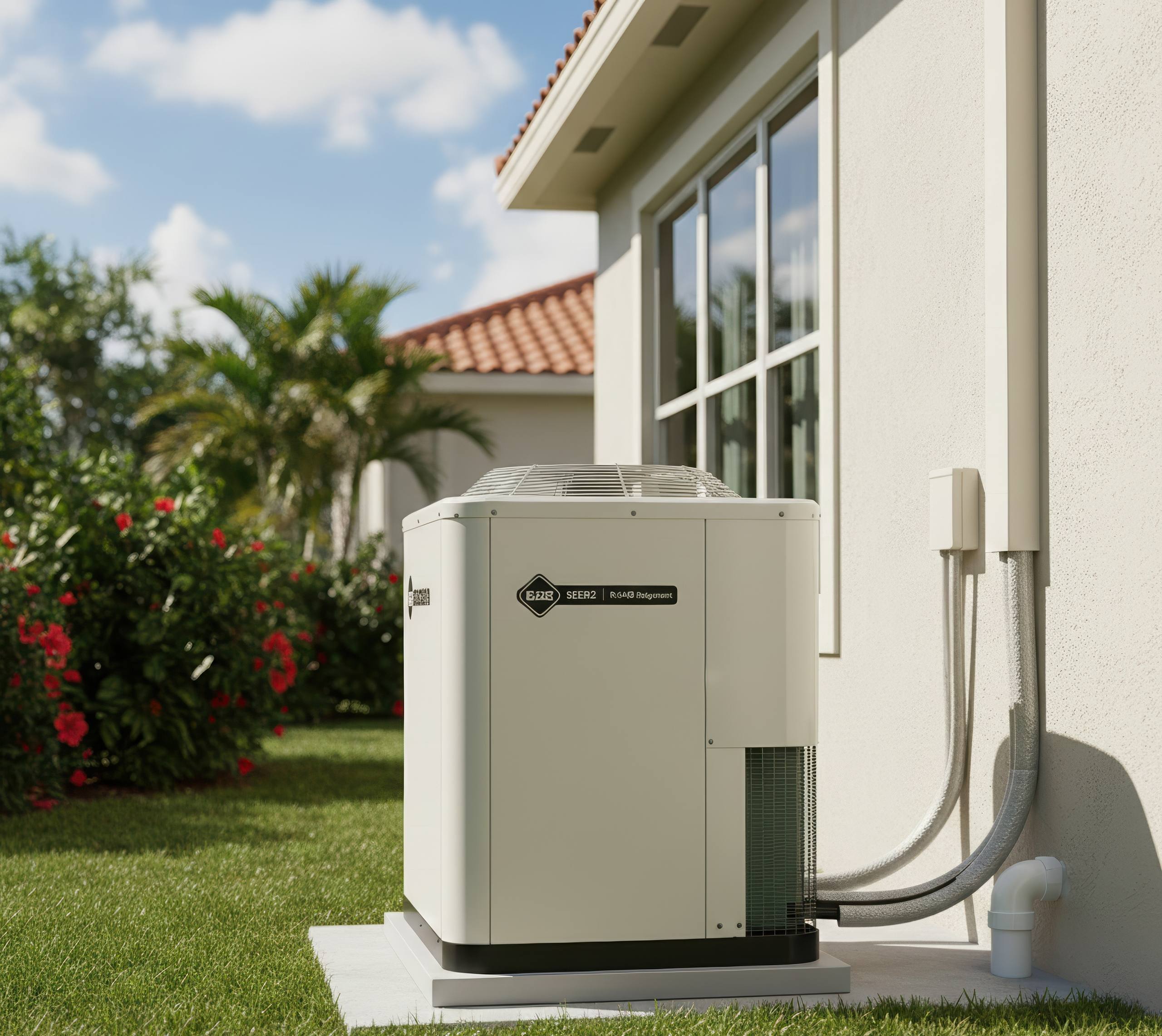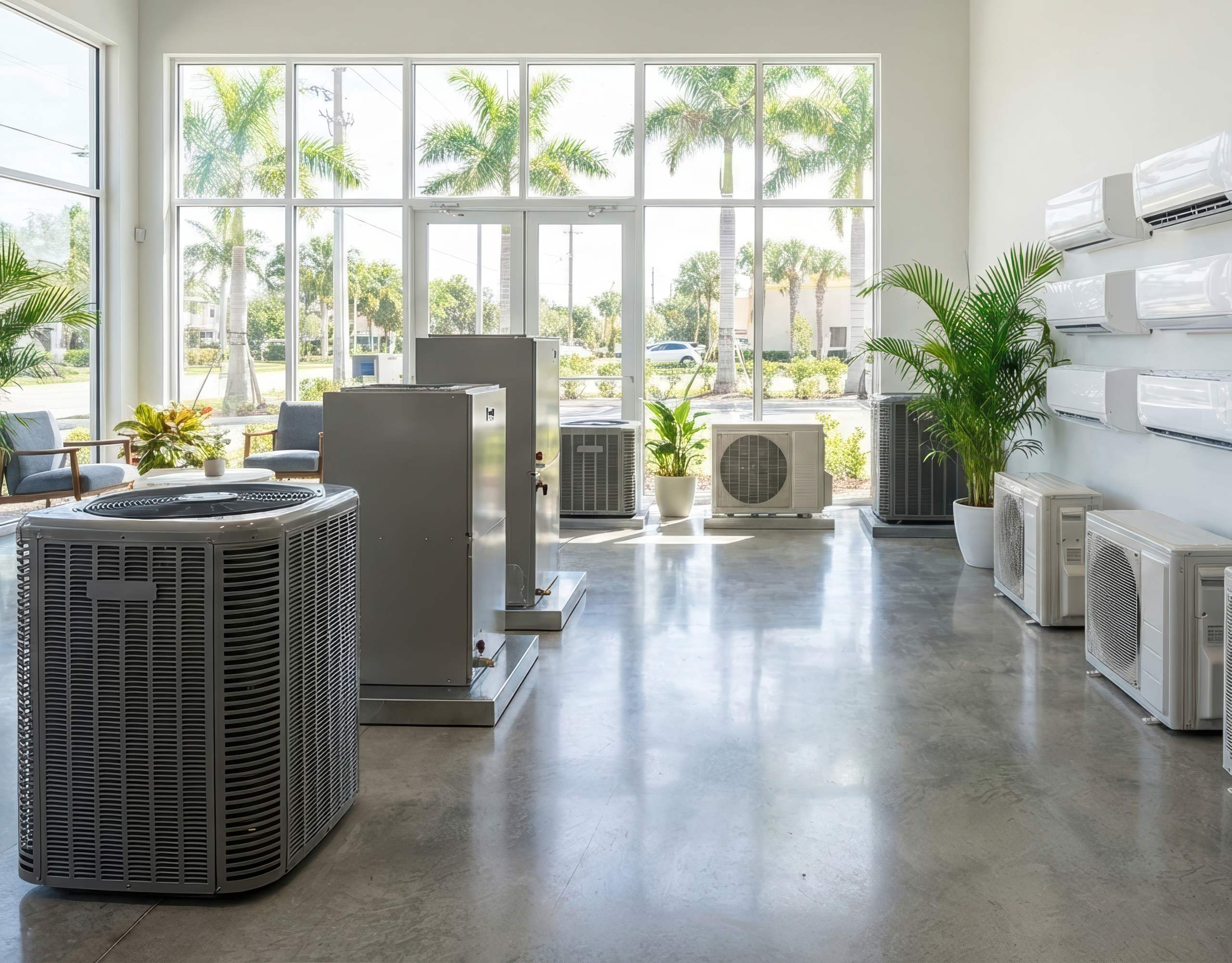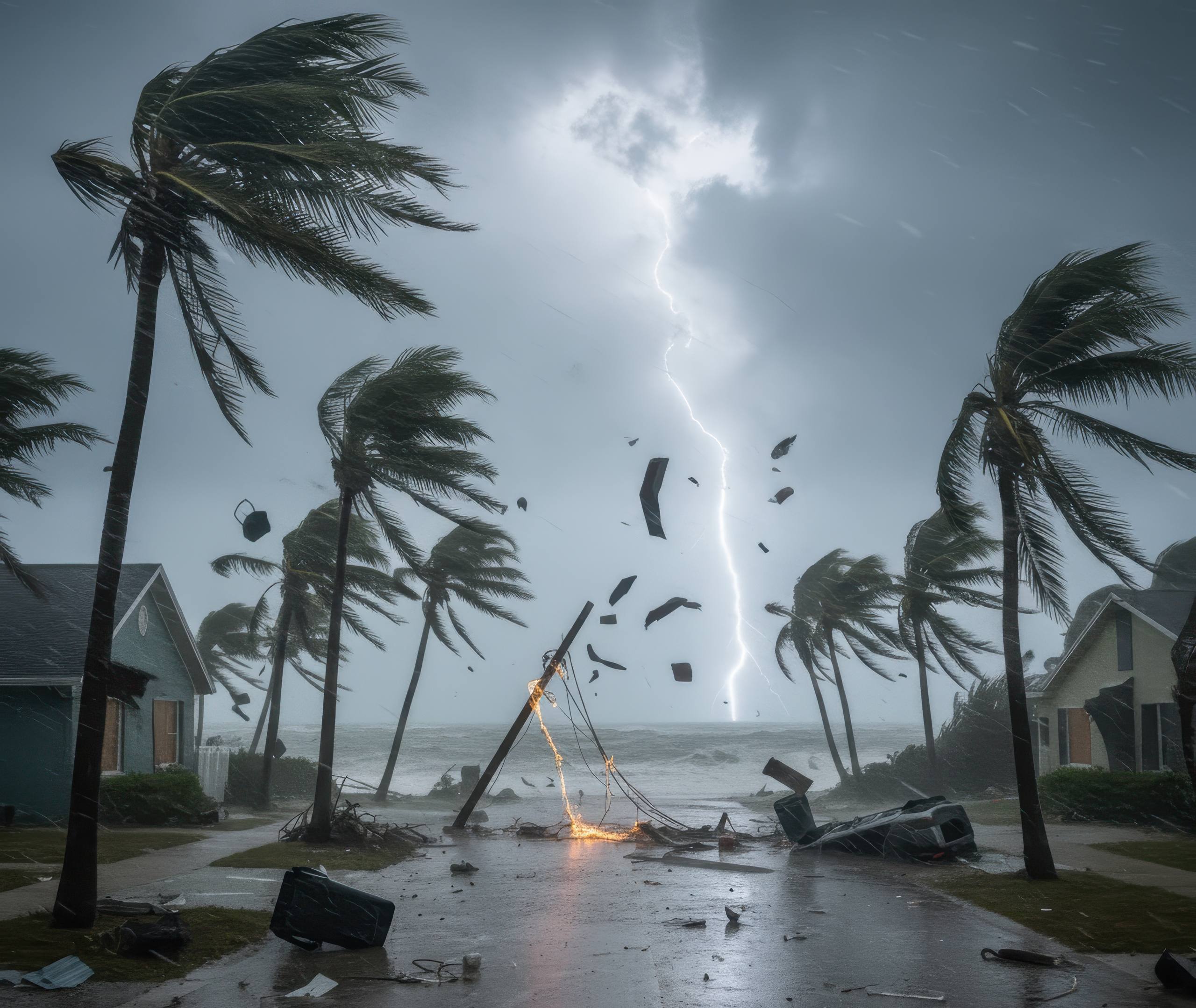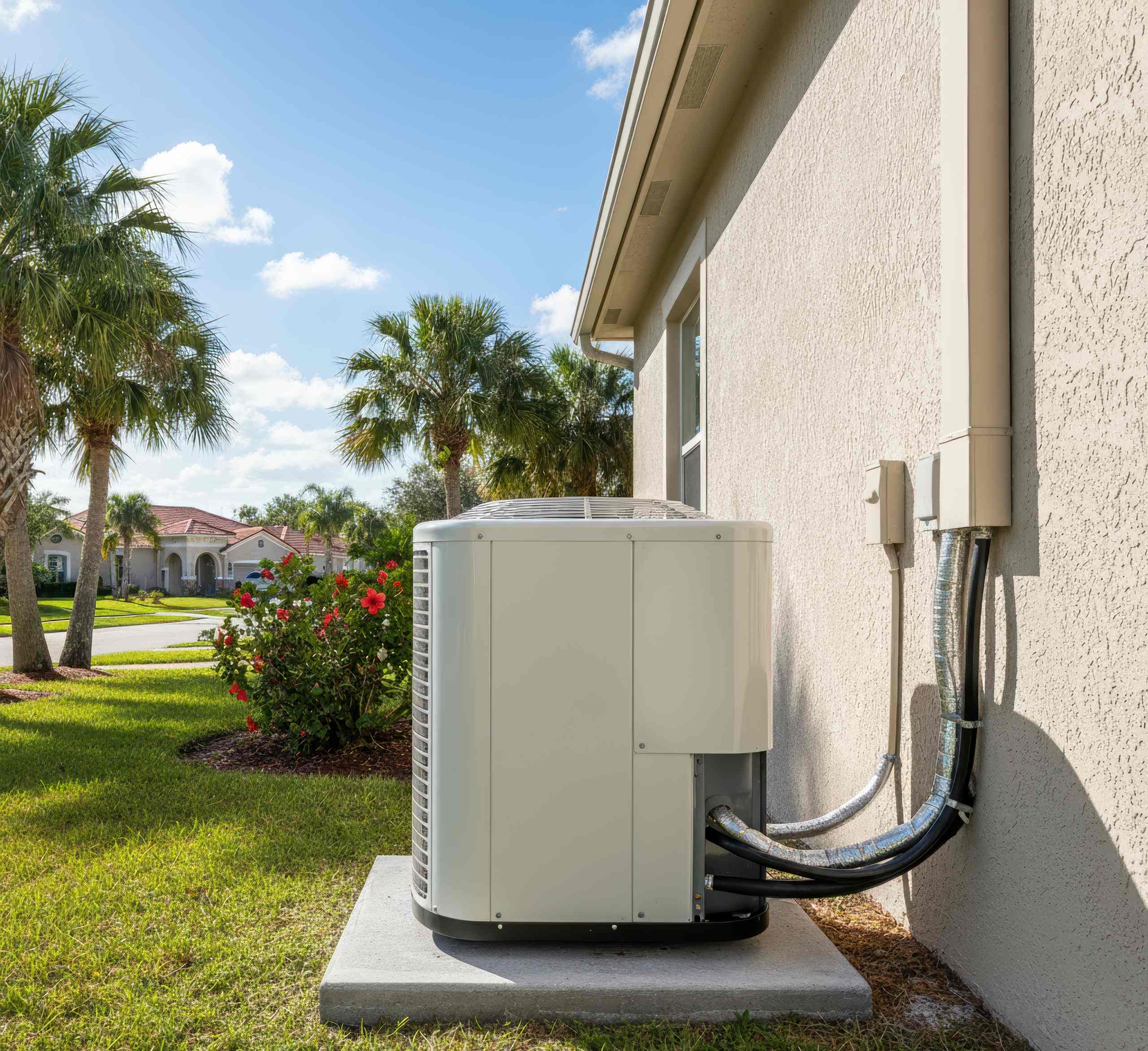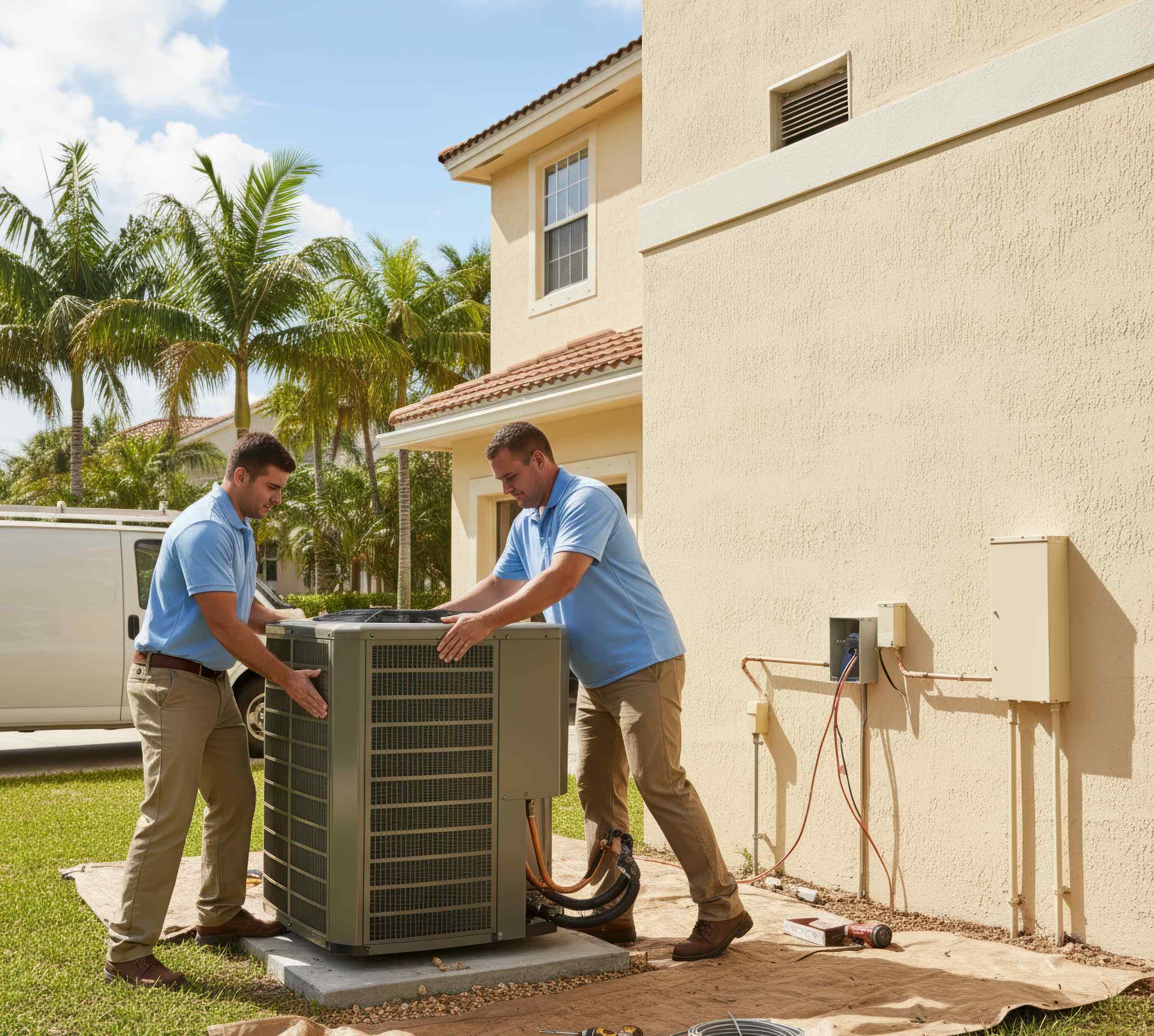Air conditioners should mainly hum gently along in the background doing their jobs. If you start to hear unusual noises like running water, splashing, dripping or gurgling sounds, it can be quite alarming.
Occasional dripping water noises are probably nothing to worry about but don’t ignore most other water sounds from air conditioning. They usually have a simple explanation like the cooling system failing to drain moisture properly, due to a blocked condensate drain pipe and overflowing drain pan.
Fortunately, your AC unit probably isn’t about to fall apart—but neglecting the issue can lead to water damage in the home. Simple fixes will prevent this.
Even for more complex issues, routine AC repairs or even a standard AC tune-up from an HVAC professional will resolve the problem and restore your AC to peak performance.
So, let’s take a closer look at running water sounds from air conditioning systems and what you can do about the problem…
Why does my AC make running water sounds?
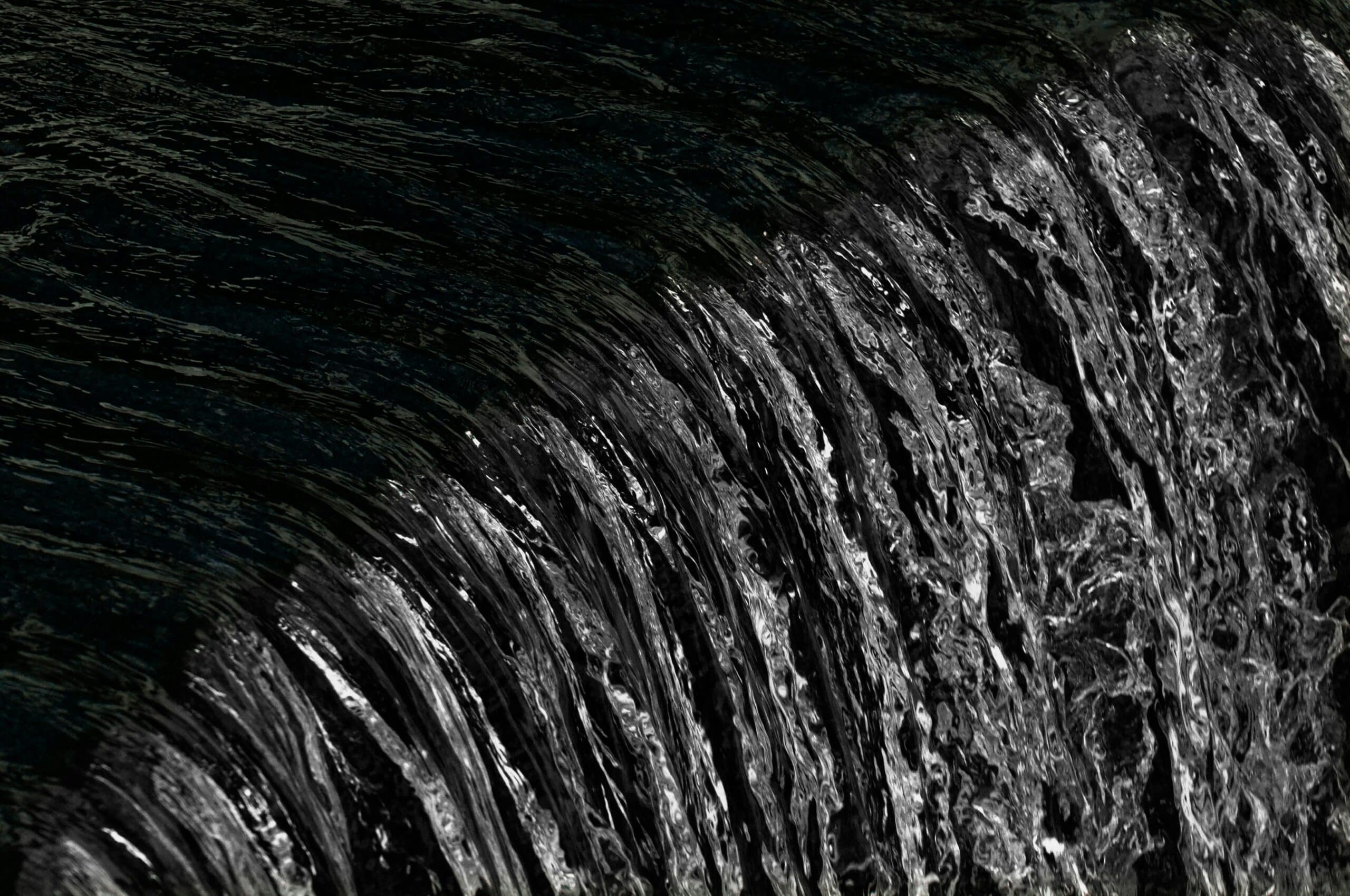
Your central AC unit should never sound like running water. If you regularly hear splashing or running water sounds coming from your system, it’s time to investigate.
On the other hand, an occasional dripping sound coming from your air conditioner is quite common and could simply mean that your AC is functioning properly as it handles the moisture removed from the air.
Generally speaking, running water sounds indicate that the drip pan on the inside unit has started to overflow, the condensate line is blocked or the evaporator coil has frozen over.
Remember, the SW Florida climate is humid as well as hot. To function properly and cool the inside air, AC units must remove moisture from the air. This creates significant amounts of water that a well-maintained AC unit efficiently channels away and drains outside of the home.
When this process is interrupted, problems may arise and strange water sounds may be heard. It can also lead to mold and bacteria buildup and bad smells from the AC unit.
Water-sound problems are usually not too serious if addressed quickly by an HVAC technician but ignoring them can lead to leaks and water damage in your home.
Let’s take a closer look at the potential cause of running water sounds:
STAY COOL ALL YEAR ROUND WITH ONE WAY AIR…
The team at One Way Air installs, services, and repairs all types of air conditioning systems in Southwest Florida. Get in touch with us here for a quote or call 239-233-4356 in emergencies.
Overflowing drip pan
Healthy, well-maintained air conditioner units remove water from the air and it either evaporates or collects in the drip pan.
Many units have two drip pans: a primary AC drip pan installed on the evaporator coil and an auxiliary drip pan located either directly beneath the main pan or under the unit itself.
The condensate from the drip pan(s) will drain out through a condensate pipe to the outside of the home, where it drains away.
Splashing or running water noises mean your drip pan may be overflowing and the water has nowhere to go but run over the sides of the drip pan, leaking into your home and potentially causing water damage.
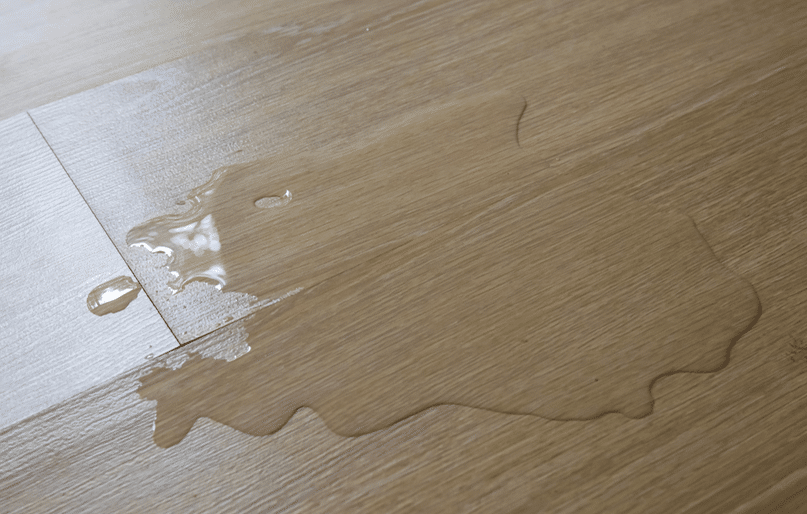
Blocked condensate line
If the condensate line is blocked, this can cause your AC to lose efficiency and fail to channel water away from the inside of the home properly, leading to water sounds.
Condensate lines exit the home and can become blocked by mold, algae or debris lodged inside the piping.
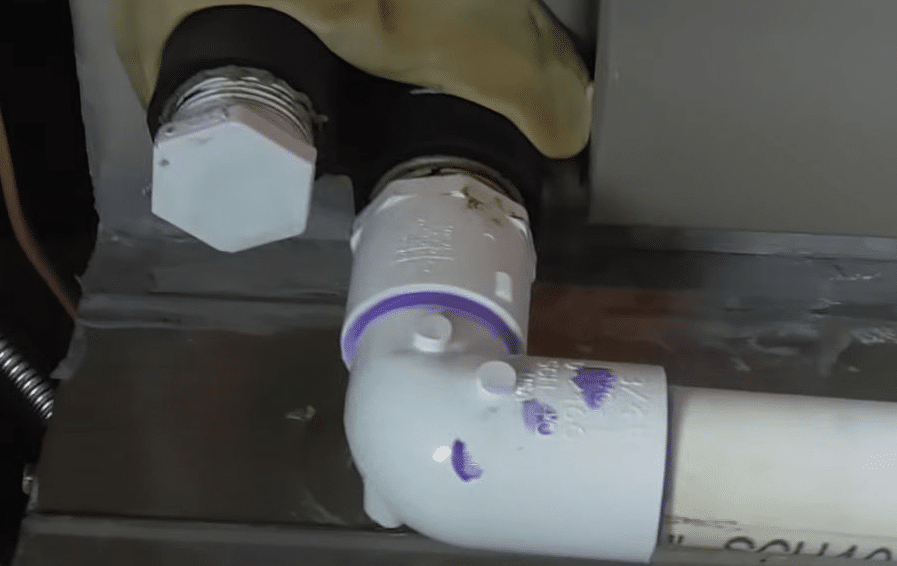
Frozen evaporator coil
If the evaporator coil in your AC has frozen and is now thawing, it could also produce a water sound as the water starts to run.
A frozen evaporator coil usually occurs due to a lack of airflow from a dirty air filter or an issue with the blower. It could also be due to low refrigerant levels (“undercharged”), a dirty evaporator coil or a faulty thermostat.
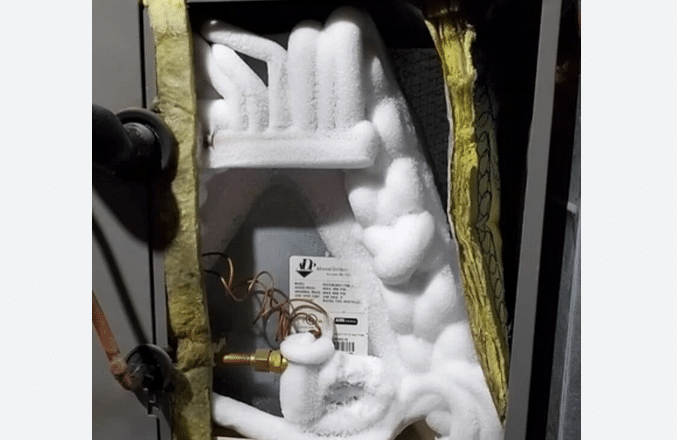
How to fix AC water sounds
With the cost of a new AC system in Florida representing a significant investment for most homeowners, you should do everything you can to extend its life. Never keep your AC unit running if you’re hearing persistent water noises as it can damage parts.
If your running water sounds are caused by an overflowing drain pan from a blocked condensate drain pipe, you’ll need to unclog the pipe.
The drain line runs from the condenser coils inside the home to the exterior of the home or another drainage point. This can become clogged from mold, dirt or debris outside the home.
To unclog the drain, switch off power to the AC unit and use a wet/dry vac to suck the blockage out.
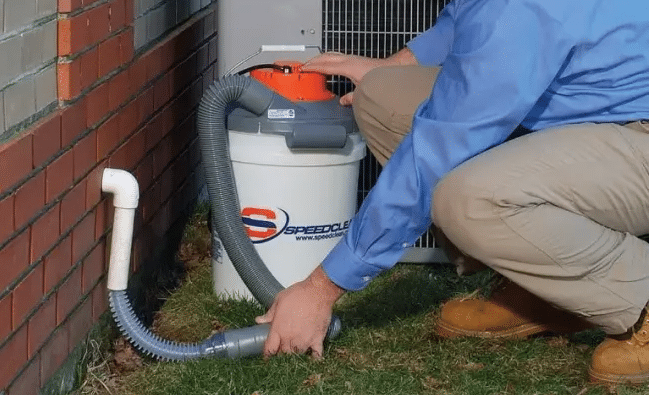
If in doubt, call a professional to perform this routine repair job.
A float switch is supposed to automatically shut off your air conditioner before the drain pan overflows. If this switch is not working, you may have an overflowing drain pan to contend with.
If your AC keeps turning itself off because of a full drain pan, this also needs attention.
In the meantime, to empty the auxiliary drain pan, locate the tray below the evaporator coil or on the underside of the indoor air conditioning unit. Empty it in a sink or outside. Be careful if it’s overflowing as it’s likely to spill onto your floor because it’s almost impossible to keep it perfectly level as you carry the tray.
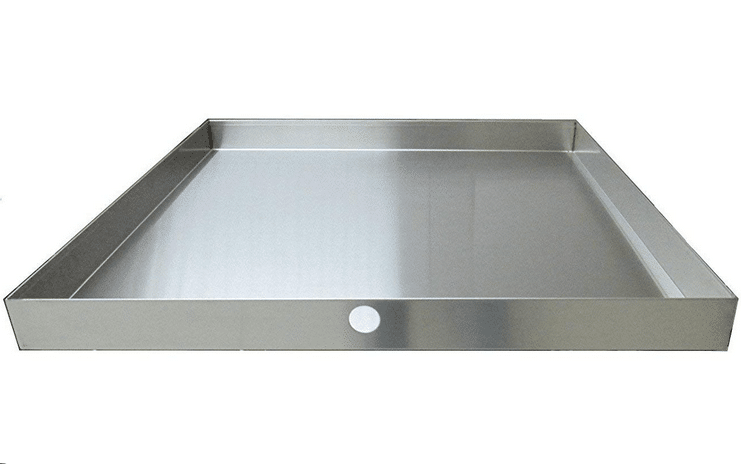
If your AC’s water sounds result from the underlying issue of a frozen evaporator coil (which is now thawing), this usually requires professional attention to fix—unless the problem is caused by an air filter, which may be easily changed or cleaned by homeowners.
What other water sounds are made by air conditioners?
As well as running water sounds, other types of water sounds may start coming from your air conditioning unit:
Dripping noises
Dripping noises from ACs are common. The good news is that, usually, these sounds mean that your air conditioning is working fine and completing its cooling cycles efficiently. Your AC removes moisture from the air and this condenses on the evaporator coil, producing water in the form of condensate that drips into the tray below and is channeled away.
On especially hot and humid days, a lot of condensation can drip. You can sit back, relax, and enjoy the cool air in your home.
If the AC is making repeated dripping noises and/or the air is not cooling properly in your home, that’s different. You’ll need to troubleshoot the AC issue and may need to call an HVAC professional.
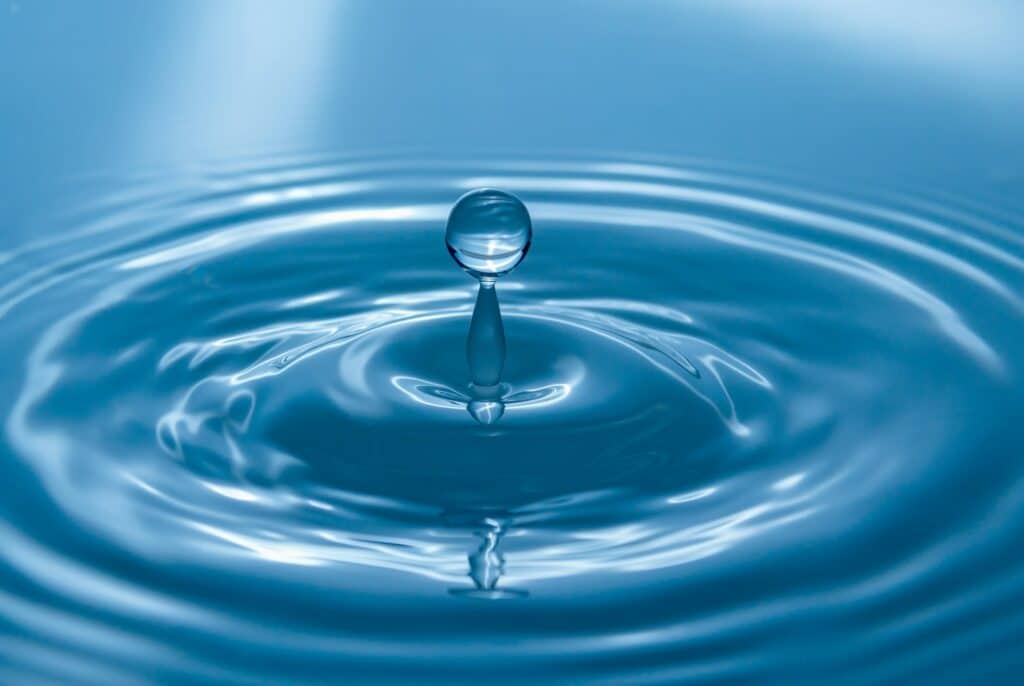
Gurgling noises
Gurgling noises may indicate a problem with a pressure imbalance in your AC system. The refrigerant line, which is a copper pipe inside the indoor unit of your AC system, supplies refrigerant gas to the system, using pressure differences to cool the air.
Refrigerant is an essential part of the air conditioner’s cooling process but a leak in the line or a problem with the seals can cause small amounts of air to get into the line (it should be airtight). The bubbles that form could then produce gurgling noises as the refrigerant flows around the system.
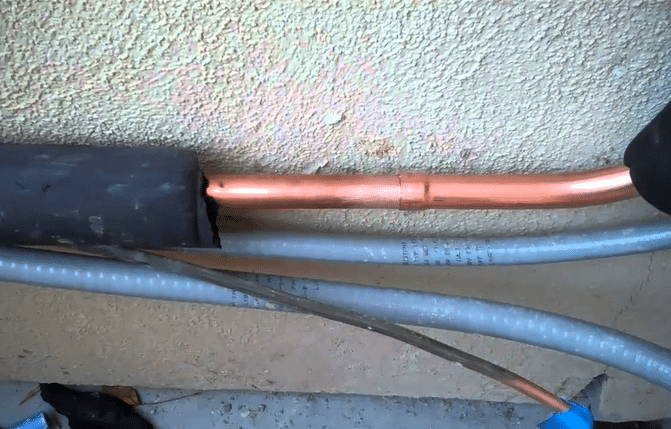
Your AC system could also gurgle due to “overcharged” refrigerant, i.e., there’s too much refrigerant in the system.
When dealing with potential refrigerant problems in your AC system, always consult with a professional HVAC technician as handling refrigerant can be hazardous.
Hissing noises
An AC making hissing noises is another issue often caused by refrigerant, possibly indicating a small leak allowing the gas/liquid to escape.
Hissing sounds can also point to a leak from a defective or cracked refrigerant valve, pressure issues in the compressor in the outside unit or a blockage in the system, such as a clogged refrigerant line or a clogged air filter, which increases the air pressure within the unit.
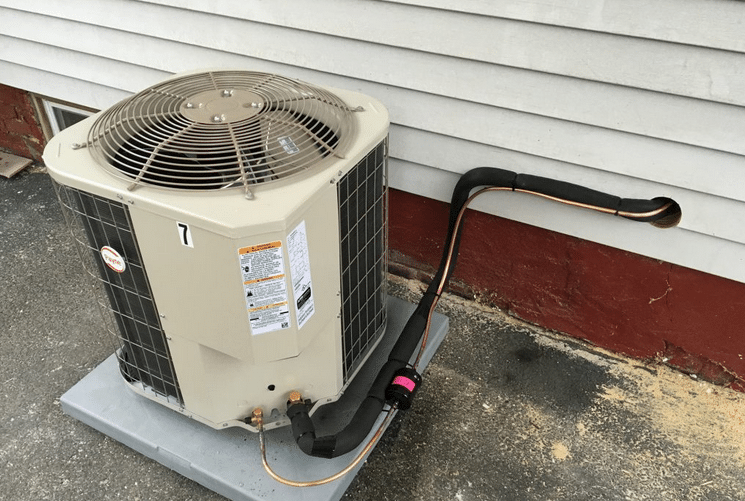
If changing the air filter doesn’t solve the issue, call a professional to troubleshoot and inspect the refrigerant line.
AC tune-ups and repairs in SWFL
Strange sounds coming from your air conditioner are a typical sign that your AC needs a tune-up. Don’t ignore them, watery or otherwise.
Learn to differentiate between normal dripping sounds from AC units and other running water sounds that may hint that something’s wrong. You may be able to avoid an unnecessary emergency AC repair call.
For more serious issues, your air conditioning may need more extensive AC troubleshooting and repairs to prevent water damage and restore its cooling efficiency.
If you’re in SWFL and have any issues with your cooling system, contact One Way Air to arrange a full inspection and fix.

